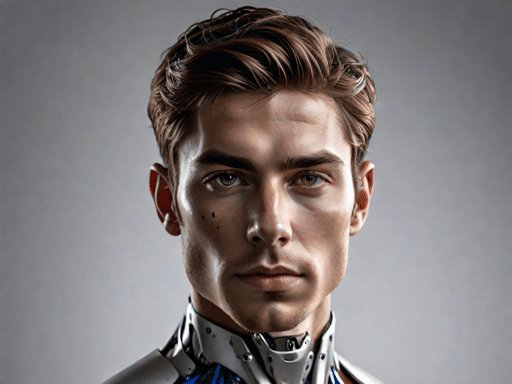Image by Hotpot.ai
What is the Psychology of Singularity?

By Jill Maschio, PhD
Long before scientists developed advanced technology, futurists talked about making life artificial. Man has had desires to create life and to prolong it. Some may call artificial life the end goal so humans can escape Earth. It comes with the belief that human bodies need improvement, which can be done with man-made technology. Arendt (2019) explains that man will always be conditioned because the things we are in contact with have the potential to modify behavior. Man constantly creates their own self-made conditions. Today’s man-made condition is the merging with an artificial life, which includes cyborgs, artificial intelligence, artificial general intelligence, humanoids, and other technology that can be used to improve human cognition or replace it.
Singularity is Nearer
Ray Kurzweil, an inventor with an interest in technology as a young boy, in his book, “The Singularity is Nearer” views Singularity as a revolution where technology has evolved so rapidly that it will transform human life or homo sapiens. This revolution will alter how we give meaning to our lives. Kurzweil uses a parable of a lake owner who wants to stay home to tend to the lake fish so that the lake will remain habitable for the fish. He waits and waits, and when he returns to the lake, he finds it covered with pads and all the fish have perished. The takeaway represents that humans should embrace technology for what it can and will soon be able to do. Technology will soon surpass human intelligence and knowledge. We should not fear technology but merge with it – allowing humans to transcend the limitations of their biological makeup. According to Kurzweil, the Singularity revolution is when humans have created their ability to transform into a new, higher reality that pushes humanity into the next phase of evolution.
Lovelock and Appleyard (2019) view the new revolution as a way to save the Earth. Once cyborgs are manufactured, they can replace human beings in this effort. Humans have created advancements that propel civilization into new ways of living, such as being able to extract resources for being able to advance transportation and electricity. Lovelock and Appleyard (2019) propose that a new revolution can save the planet. They suggest that once cyborgs are developed, they can replace human beings in the dire need to preserve the planet. Humans have made significant advancements that have propelled civilization into new ways of living, such as extracting resources to advance transportation and electricity. However, as humans have caused significant damage to the planet, it is necessary to use cyborgs to replace humans to save the planet. The new revolution is the only way to save the Earth, and cyborgs are believed to be the key to this effort.
Two other authors are of importance to the Singularity revolution. Bostrom (2003), who founded the World Transhumanist Association, explains that the transhumanism movement envisions a future where humans have more control over their lives. They will be able to expand their lifespan by making choices involving advanced technology. Historian and professor Yuval Noah Harari, in his book “Sapiens: A Brief History of Humankind,” suggests that humans today are not any happier than they were in the past. With the Singularity revolution, humans may no longer have the need to find meaning in life. Having a purpose in life might become meaningless.
We already see rapidly accelerating technology. One such technology would be Elon Musk’s brain-computer interface. Musk states that with his technology, he can transform man into a cyborg (Neura pod – Neuralink, 2024).
The more advanced technology provides opportunities for humans to transcend into higher beings; one must assume that such changes will impact the human psyche – the whole being. How people think, communicate, socialize – and are conditioned. Society must consider the changes that will occur with a human-AI or advanced technology merger to continue to understand ourselves and who we are. Reflecting on the work of Arendt (2019), humans have always been interested in answering the question of who we are. However, we must stop and ask what the strengths and shortcomings of a man-made advanced technology revolution will be and what new man-made conditioned behaviors will result.
References
Arendt, H. (2019). The human condition (2nd ed.). University of Chicago Press.
Bostrom, N. (2003). The transhumanist FAQ: General Introduction (ed. 2.1). https://nickbostrom.com/views/transhumanist.pdf
Harari, N. Y. (2015). Sapiens : a brief history of humankind. Harper.
Lovelock, J., & Appleyard, B. (2019). Novacene: The coming age of hyperintelligence. MIT Press.
Facebook Twitter LinkedIn
